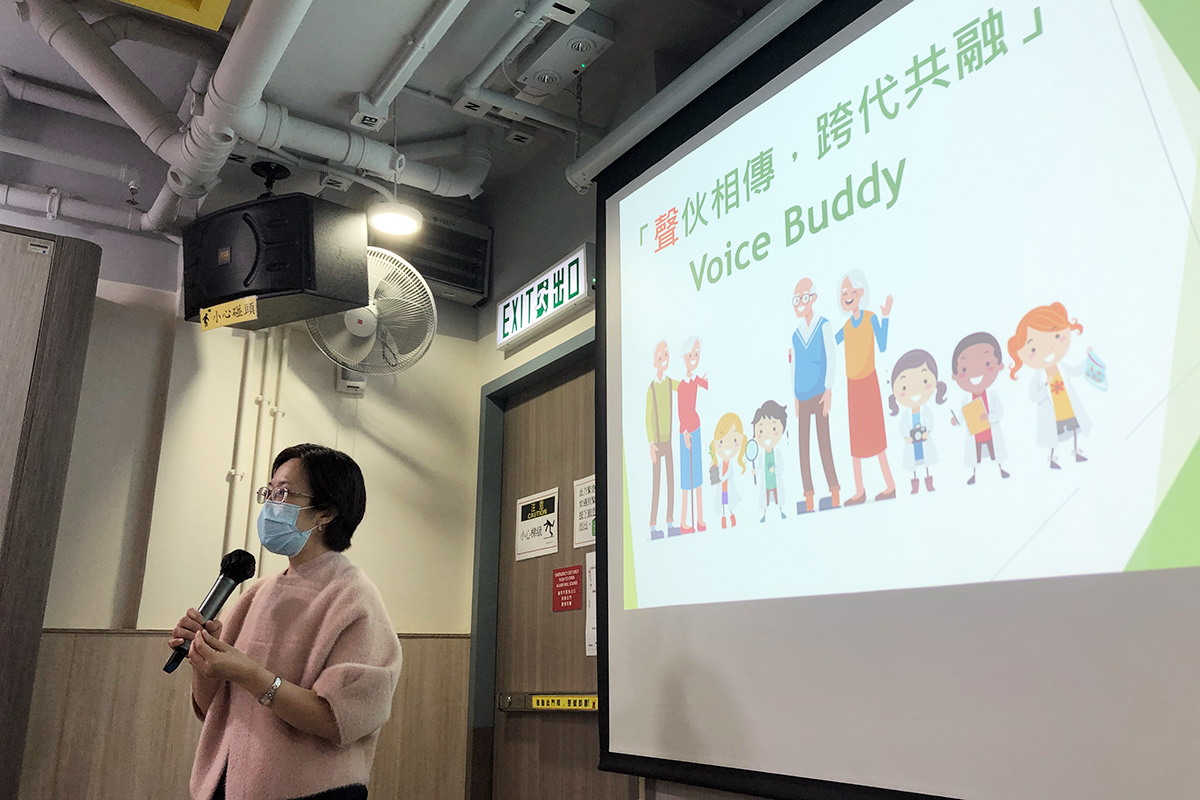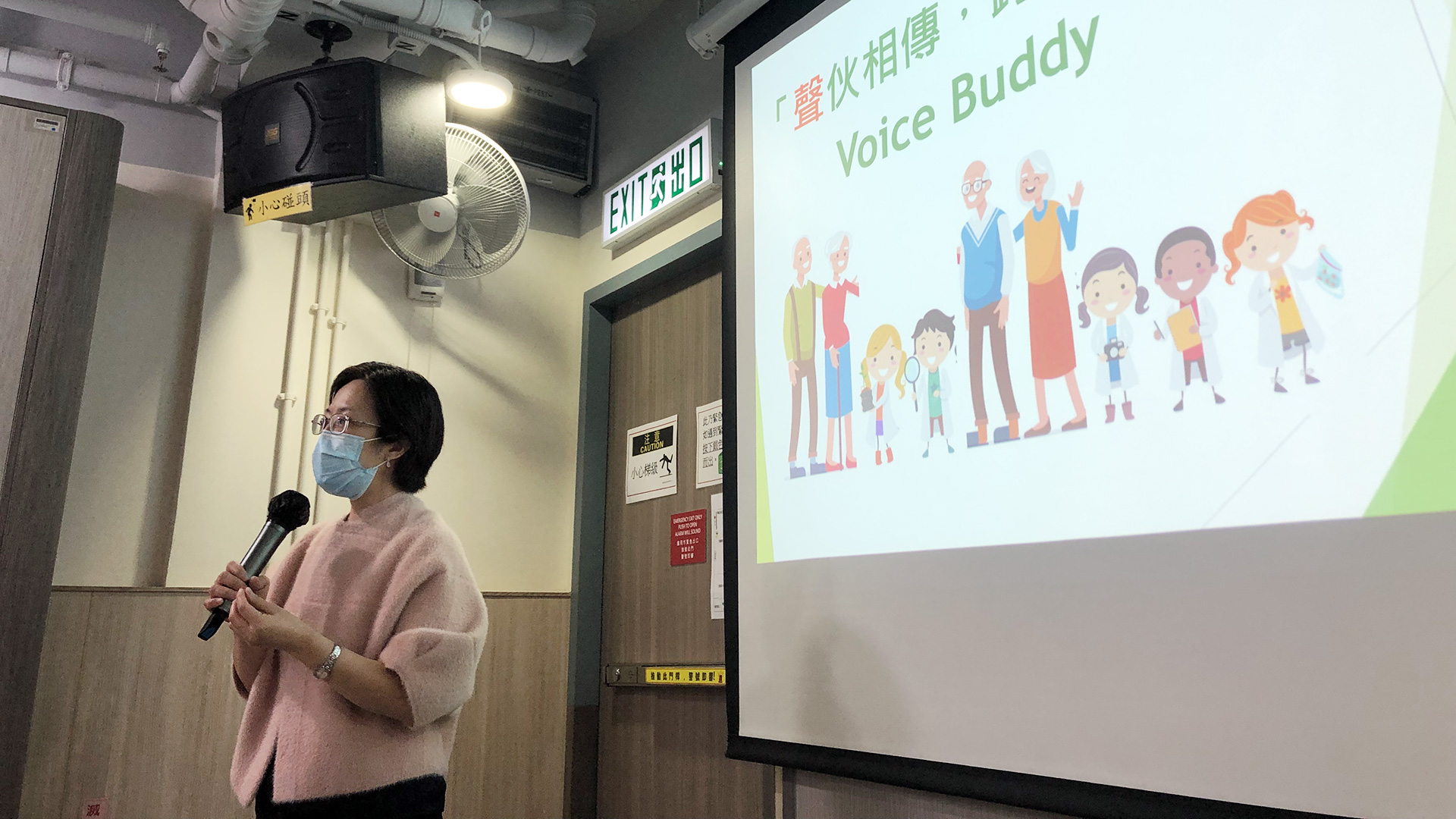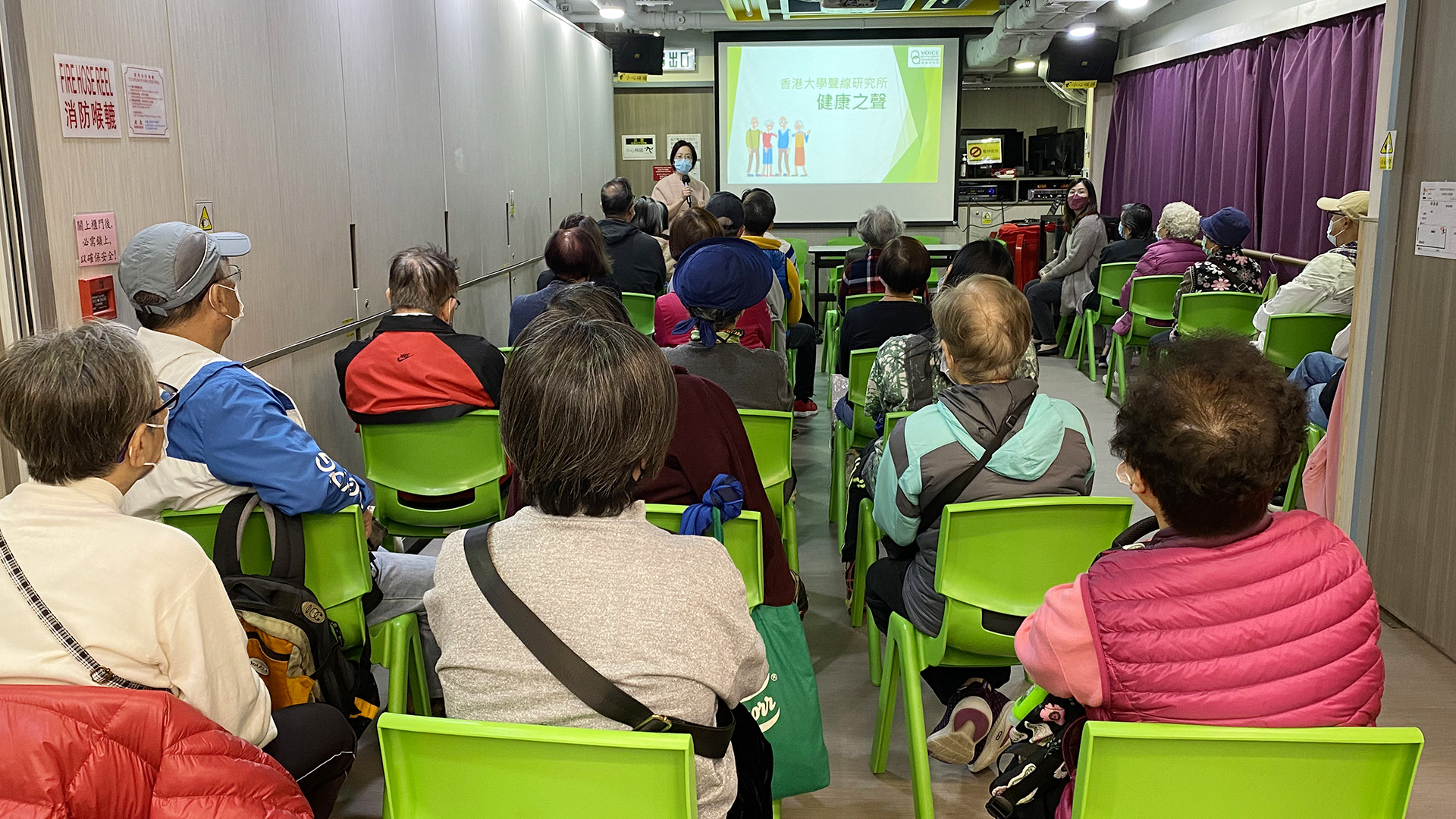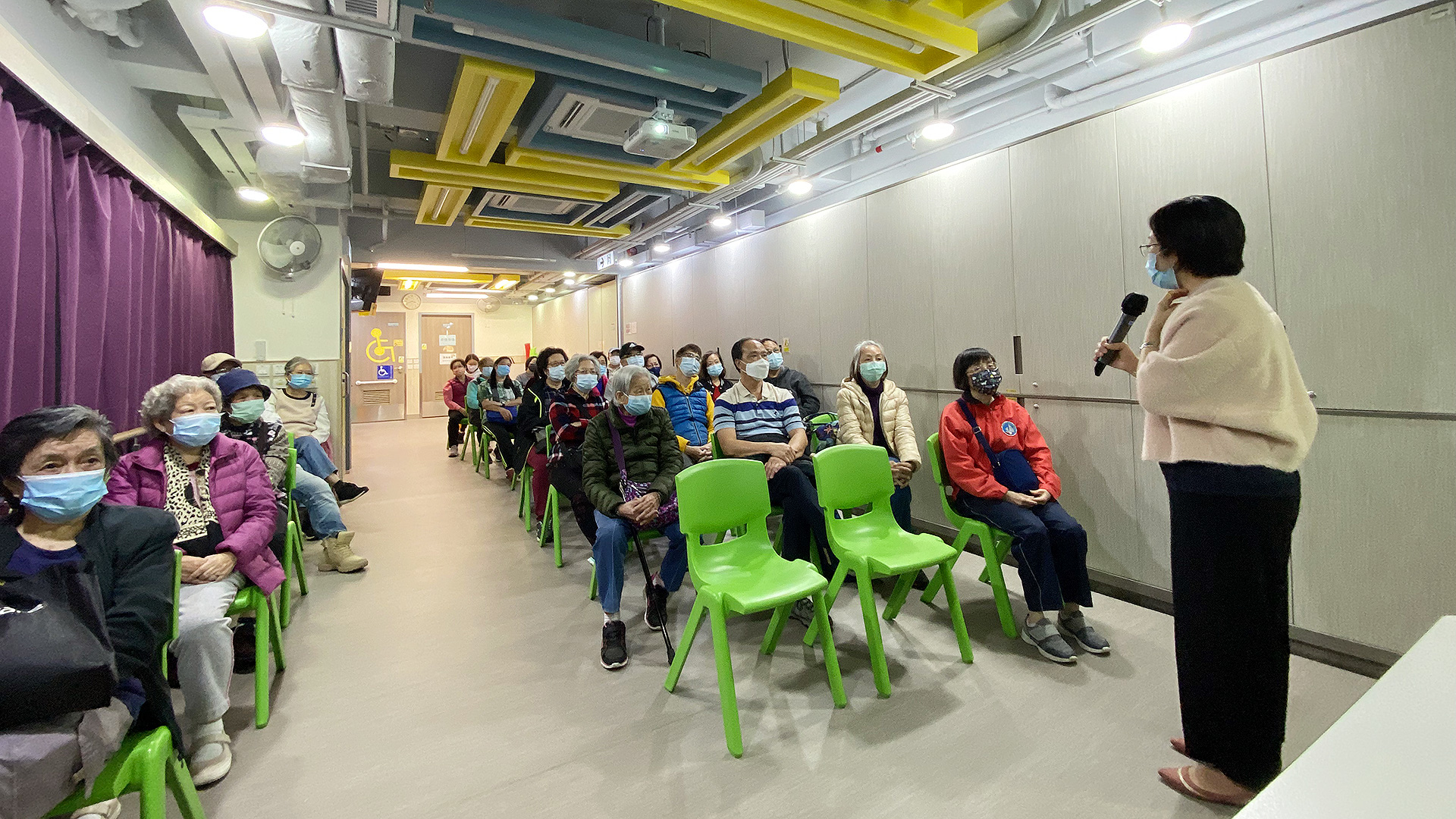
Voice Intergeneration Buddy
Sponsored by the Knowledge Exchange Fund of the University of Hong Kong
Aim
To promote voice care knowledge among young children and older adults in Hong Kong To utilize voice care education as a platform to promote and facilitate intergenerational harmony.
Why Intergeneration?
This KE project is an extension from our on-going research and knowledge exchange work on paediatric and aging voice. Our research suggests that voice problems are common in children (Ng, 2014). The majority of voice problems in children can be prevented. One of the preventive approaches is by voice care education. Data collected from the project "Green Voice Ambassador" provide encouraging evidence that voice care education is effective in promoting better voice care knowledge in primary school students (percentage of correctness increased significantly from 65.6% pre-training to 88.5% post-training). The improvements were maintained one year post-training (86.0%). Almost all (98%) of participating students and parents expressed that they would like their school to hold the voice care program again next year. The results were published in peer-reviewed, ISI journal (MA & Leung, 2020). Another project "Green Voice Senior" was also ongoing to raise the awareness of voice care among elderly.
This project hope to utilizes voice care education as the platform to bring together the younger and the older generations. Older adults who volunteer to be "Green Voice Senior" will visit schools and interact with young children to disseminate voice care knowledge. Such activities not only benefit the population served (i.e., young children), but also the volunteer his/herself. The benefits to the older volunteers are multi-faceted including enhanced psychological and cognitive functions, and the sense of being valued. The Green Voice Senior, Ambassador and Scientist will also exchange their idea and thoughts on different voice care knowledge and strategies that accommodate different age groups. The project promotes intergenerational interaction, which facilitates fostering of intergenerational harmony.
In summary, the benefits of this project are four-folded:
- Enhanced vocal hygiene and healthy voice use knowledge among older adults and young children.
- Enhanced voice-related health literacy among older adults and young children.
- Enhanced quality of life among retired older adults.
- Fostered intergenerational harmony.
Reference
Lee, T. K.-Y. (2014). Peer acceptance and teacher preference towards children with voice problems. [Unpublished thesis of Master of Philosophy, the University of Hong Kong]. The HKU Scholars Hub. https://hub.hku.hk/handle/10722/202376.
Lu, D., Yiu, E. M.-L., Pu, D., Yang, H. & Ma, E. P.-M. (2019). Parental knowledge, attitudes and practices about vocal hygiene for their children in Chengdu, a city from China. Medicine, 98(16), e15252.
Ma, E. P. M., & Leung, H. K. H. (2021). One-year follow-up of a vocal hygiene program for school-age children. Folia Phoniatrica et Logopaedica, 73(1), 1-6.
Ma, E. P.-M., & Mo, M. L.-N. (2010). Parent’s perspective of voice care knowledge, attitude and practice: A Hong Kong perspective [Paper presentation]. The 28th World Congress of the International Association of Logopedics and Phoniatrics (IALP), Athens, Greece.
Ma, E. P.-M., & Yu, C. H.-Y. (2013). Listeners’ attitudes toward children with voice problems. Journal of Speech, Language and Hearing Research, 56, 1409-1415.
Ng, B. S.-P. (2014). Prevalence of repeated dysphonia among school-age children in Hong Kong. [Unpublished dissertation of Bachelor of Science, the University of Hong Kong]. The HKU Scholars Hub. http://hub.hku.hk/handle/10722/238925.
Wong, H. Y. K., & Ma, E. P. M. (2021). Self-Perceived voice problems in a nontreatment seeking older population in Hong Kong. Journal of Voice, 35(4), 597-603.



